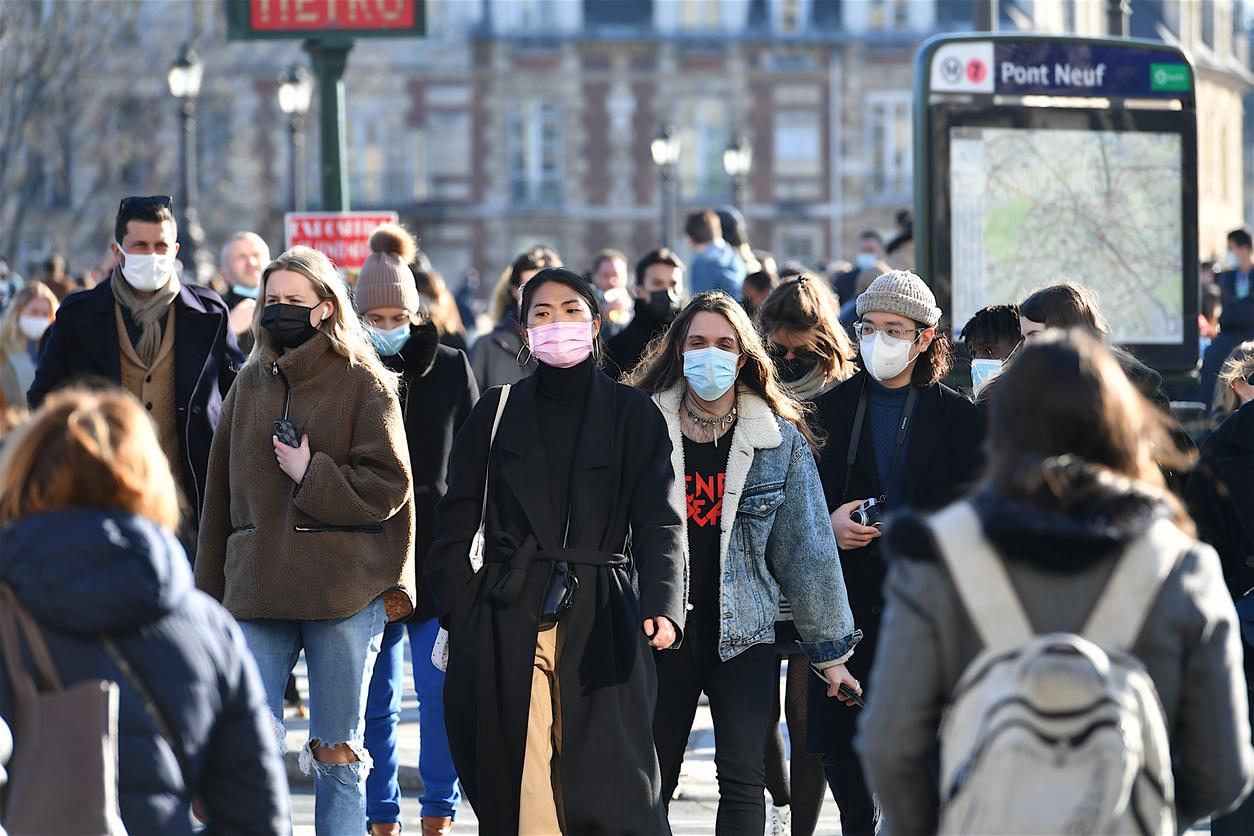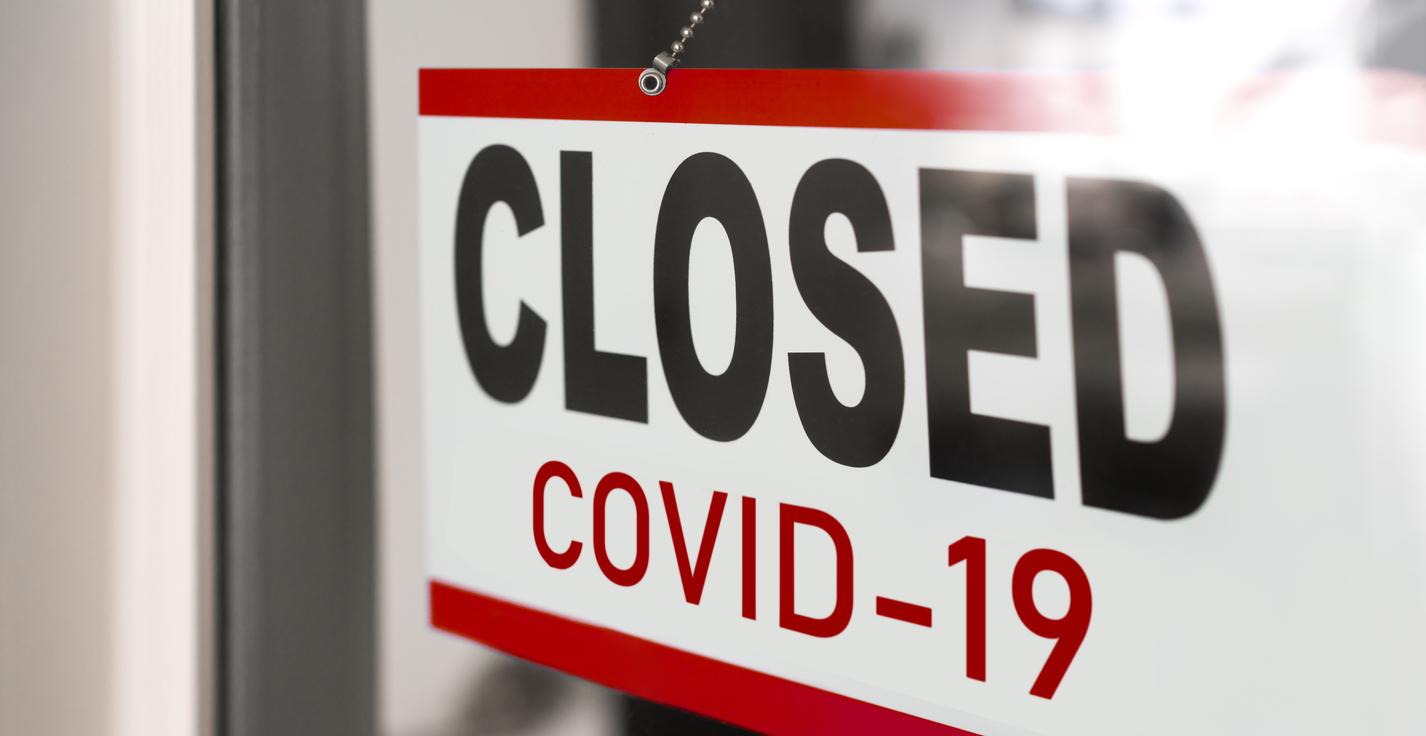A year after confinement, back to square one? Traveling to Montauban on Monday, Emmanuel Macron did not rule out new health restrictions in France, but “in an appropriate and proportionate manner”. “We will no doubt have to take new decisions in the coming days”, he said, stressing that the government will also work to restore “visibility to citizens” even if the virus “remains in control of time”.
The Prime Minister, Jean Castex, was for his part invited on Sunday March 14, on the Twitch streaming platform. Answering questions from Internet users, from the apartment of France Televisions journalist Samuel Etienne, he did not escape the question: “Are you considering a reconfinement in Ile-de-France?”
Responnse ? containment “is not excluded”. The Prime Minister acknowledged that “the situation is not improving”, with “an increasingly high number of contaminations” and hospital services “very busy”. Nevertheless, “we are trying to use all the weapons at our disposal to avoid it, he added, because “eAt the same time, reconfining is an extremely strong act with very serious consequences”. Before concluding : “IWe must use all the weapons available to avoid confinement.
Sunday, on BFM TV, the director general of Health, Jérôme Salomon had for his part declared that “if we have to confine, we will do it”.
L’executive ensures to observe the health indicators hour by hour, but considers at this stage confinement as a solution “of last resort”. It relies on the deprogramming of non-urgent operations (40% in Ile-de-France), on medical evacuations (“tens or even hundreds of patients could be transferred out of the region”, warned Olivier Véran), and a acceleration of the vaccination campaign.
Number of cases, hospitalizations, incidence… The indicators are increasing
The health situation is still “worrying due to the increase in intensive care admissions in the context of the dissemination of more transmissible variants” and “mortality is still high”, underlines Public Health France, in its epidemiological bulletin (March 12) . Admittedly, the indicators improve in the over 75s in connection with vaccination. But, observes SPF, “intensive care admission rates increase among 15-74 year olds since the end of January.
An increase, which could be explained by greater risk-taking in these age groups, but also by a increase in the severity of infections by the variant English. An English study published on March 10 in the British Medical Journal, confirms that the English variant is not only more contagious, but also 64% more deadly than the classic coronavirus.
For the time being, the situation is critical in intensive care units, in particular in Ile-de-France, where the incidence rate has reached 377 cases per 100,000 inhabitants per week and where it is even higher than 400 in Val- de-Marne and Seine-St-Denis. “Every 12 minutes, a Parisian is admitted to intensive care beds“, explained Olivier Véran, last Thursday during the press briefing.
In total, as of March 14, 4,127 patients were hospitalized in intensive care (the peak of the second wave was 1,136 patients on November 25). The number of new daily cases has been between 25,000 and 30,000 in recent days (remember that Emmanuel Macron’s objective a few months ago was to lower daily contaminations to 5,000). The positivity rate is currently 7.4% and the figure R, reflection of the propagation speed of Sars-Cov-2, remains slightly above 1 in most regions, a sign that the virus is circulating.
Patient transfers cannot relieve resuscitations
The government is banking on patient transfers. The first six patients were transferred this weekend to Nantes, Le Mans and Bordeaux. Others will be by air, announced Gabriel Attal, government spokesman, before a more massive operation – hundreds of patients – at the end of the week, via medical TGVs mainly to Pays de la Loire, New Aquitaine and Occitanie. But will these “thistle” operations be enough?
Invited by France Info on March 15, Professor Timsit, Head of the intensive care unit at Bichat Hospital (Paris) recalled that these transfers are subject to the consent of the families. In addition, he commented “rather than transferring patients, why not transfer health personnel” when “our caregivers are exhausted and are taking care of very severe patients” or even “to recall caregivers to retirement”. And to deplore: “We are closing beds and putting other patients in difficulty”. The coming weeks are going to be difficult. “We’re going to be strangled in the next 15 days.”
As for Professor Bruno Riou, dean of the Faculty of Medicine, crisis medical director of the Assistance Publique-Hôpitaux de Paris, he was the guest of France Inter this Monday. According to him, “The number of places in other regions will be limited, families will be reluctant, so we will have trouble finding enough patients to transfer.”
The vaccination effect, essential but (not yet) sufficient
To avoid clogging up services, the government is also counting on accelerating vaccination, with a objective of ten million French people vaccinated by mid-April, despite the delivery delays announced by AstraZeneca.
Vittoria Colizza, epidemiologist (Inserm), explained this Sunday in the columns of the JDD, that in all cases (including in a scenario of 300,000 injections per day), “we have to wait until the beginning of April for the scenarios to separate and we observe the beginning of the impact”. If according to her, the key is “to vaccinate very quickly, to protect the population but also to avoid giving the virus too much time to successfully escape vaccines”, andHe emphasizes again: “We really need social distancing measures, no doubt differentiated according to the territories. Avoiding confinement has societal and economic advantages. But this induces a lot of infections, hospitalizations, long Covid, not to mention deaths…”
Considerable health consequences
Remember that the deprogrammings have impacts on the care of other patients, in particular on cancer screening. Professor Axel Kahn, president of the League against Cancer, got alarmed at the microphone of Europe 1 Sunday, the consequences of the government strategy on patients with chronic diseases. According to him, “up to 10,000 people will lose their lives” due to insufficient management of these diseases during the pandemic. “The hospital tension increases and aggravates” the problem, affirms Axel Kahn, stressing “thatwe export the hospital voltage and that we are worsening the situation of the chronically ill in New Aquitaine, in Nantes and in all the regions to which we are going to send dozens of people in intensive care “. With up to 100 medical evacuations planned and 40% of surgical interventions in Ile-de-France postponed, “we are in an unreasonable situation”, still believes the president of the League against cancer.
Doctors are unanimous: hospitalizations and resuscitation will continue to increase over the next two weeks. “I hear a lot of people say that a week without confinement is a week gained, for me it’s a lost week, especially when you consider the number of deaths, the number of patients in intensive care, of which it must be remembered that one in four will die and some will have sequelae, commented on France Inter Professor Bruno Riou. When we also consider all the contaminations: I remind you that all of the long Covids would affect one in ten of these patients: we are at 4 million contaminations, that means that 400,000 French people will have a long Covid. And then there are all those who do not have Covid, but for whom the deprogramming, the non-screenings for cancer, will pose enormous problems. The consequences are far-reaching.”
Read also :
- End of the Covid-19 epidemic: why is Emmanuel Macron betting on summer 2021?
- Covid-19: a risk of death multiplied by 2 in the event of cardiovascular disease
- Tous Anti-Covid app: how to download it? what features?
- Anti-Covid vaccination: the calendar, your questions
- Covid-19: immediate work stoppage in the event of symptoms


















